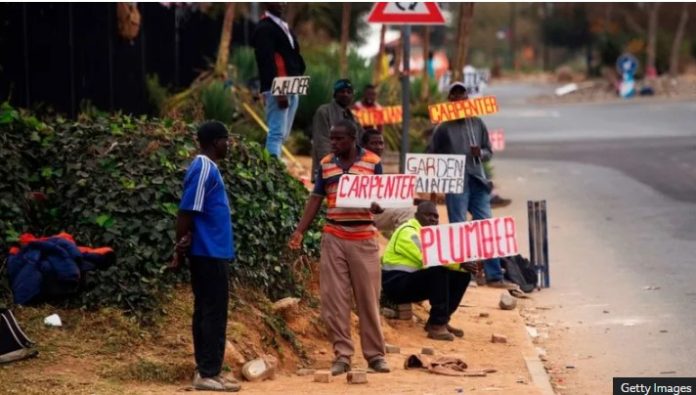The South African economy experienced a slowdown in growth, reaching only 0.7% in 2023 compared to 1.9% in 2022. This performance lags significantly behind that of other emerging markets, as highlighted by participants in an economic outlook conference held on Wednesday in Pretoria.
“Economic activity has been severely hampered by power outages and logistical challenges, reducing business investment appetite and household spending,” economists noted. They projected the national economy to grow by a modest 1.1% this year, with a gradual increase to 1.7% by 2026.
Over the past 12 months, exports have suffered due to energy and logistical issues, as well as price factors. This economic stagnation has adversely affected job creation, which has been too slow to keep pace with the growing workforce. As a result, the unemployment rate climbed to 32.9% in the first quarter of this year, stated central bank governor Lesetja Kganyago.
Kganyago explained that, mirroring global trends, overall inflation in South Africa slowed from 6.9% in 2022 to an average of 6% in 2023. However, he cautioned that these annual averages conceal the current volatility in the underlying components of inflation, indicating the ongoing risks and uncertainties in the disinflation trajectory.
“Since September last year, overall inflation has fluctuated between 5% and 6%, with frequent monthly setbacks driven by fuel, food, and service prices,” he added.
Globally, economists pointed out that the world has entered an era of new economic challenges, even though recent hurdles have not yet been fully overcome. Global growth rates are expected to remain below pre-COVID-19 trends, reflecting the impact of protectionist measures on global trade, relatively tight financial conditions, and uncertainties about future policy directions.
Inflation remains a persistent concern, with global public debt levels reaching record highs. “Despite falling from 8.7% in 2022 to 6.8% in 2023, inflation remains high compared to the 2-3% targets that many countries strive to achieve,” the economists remarked.
These observations underscore the complex interplay of domestic and international factors that continue to shape South Africa’s economic landscape, highlighting the need for strategic interventions to address these multifaceted challenges.





